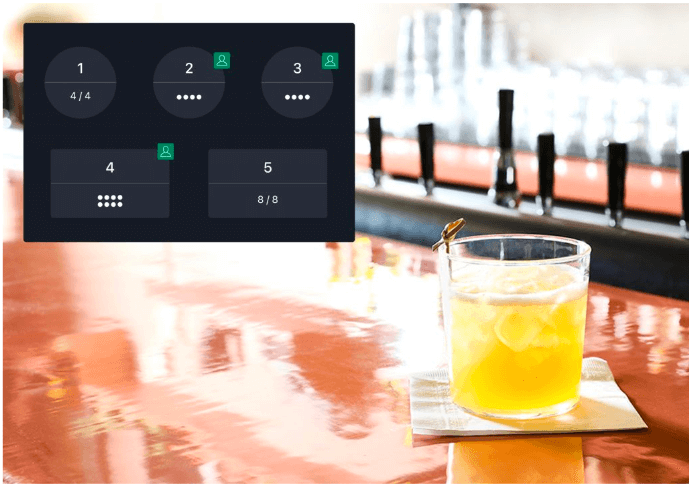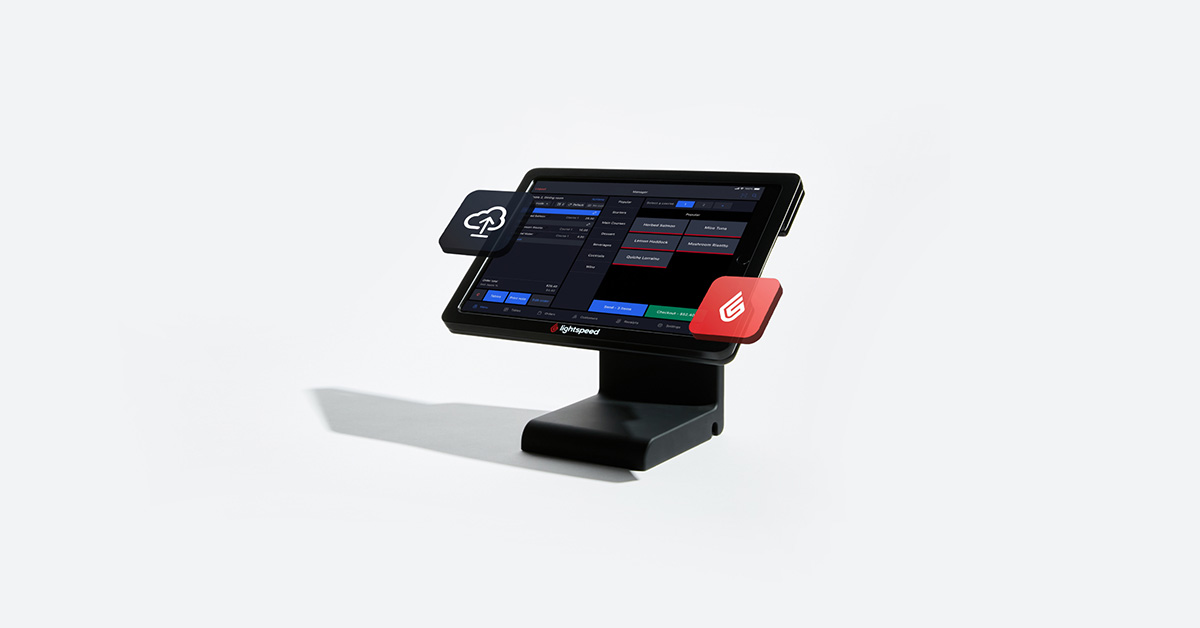
Do you dream of spending your days catching every sports game on television and hosting your city’s biggest fans all while munching on classic bar food and washing it down with beer? If you answered yes, it’s likely that you’ve at least considered opening a sports bar at one time or another.
If you’re getting more serious about it these days (desk job got you down, perhaps?) or you’re just curious about what it might really take, look no further for your how-to guide on how to open a sports bar.
Here’s what we’ll cover:
- Create your concept
- Map out your budget
- Design your menu
- Focus on beverages
- Pick a location
- Get your permits and licenses
- Choose your POS system
- Invest in equipment and interior
- Hire and train your staff
- Plan a game day strategy
- Create a loyalty strategy
- Market your sports bar
Hear from over 2,000 restaurant operators and guests to learn about the trends, challenges and opportunities defining this year in hospitality.Take the pulse of the industry
1. Concept first
What are you going to offer that the competition doesn’t? Unless you’re lucky enough to live in a magical place that doesn’t already have a sports bar, you’re going to have to figure out what sets you apart from the competition.
Will you keep it classic and authentic in a way that the other bars in your area don’t? Will you feature games that are hyper-local or cast a wide net and become the go-to place for all things sports?
The first, and perhaps the most important, step is figuring out your restaurant mission statement and value proposition. What sets you apart from everyone else?
2. Map out your budget and finances
Starting a sports bar requires significant financial planning. Make sure you carefully estimate startup costs, including leasing, renovation, equipment, initial inventory and operating capital. Consider ongoing expenses like utilities, payroll and marketing. Research financing options, from traditional bank loans to finding investors.
Develop a realistic budget that encompasses these aspects and plan for unforeseen expenses. Plus, regularly reviewing and adjusting your budget based on actual performance is crucial for long-term financial health.
| Common sports bar expenses | Typical price range |
| Location lease | $3,000 – $15,000 per month |
| Licenses/permits | $5,000 – $15,000 |
| Equipment | $50,000 – $100,000 |
| Furnishings/decor | $20,000 – $50,000 |
| Inventory | $10,000 – $30,000 (initial stock) |
| Staffing | $10,000 – $20,000 (initial hiring) |
| Marketing/advertising | $5,000 – $20,000 (pre-opening) |
| Utilities | $2,000 – $5,000 per month |
| Insurance | $2,000 – $5,000 per year |
| POS system | $5,000 – $20,000 |
| Contingency | 5% – 10% of total budget |
3. Then the menu, of course
Closely tied to your concept will be the food and drinks that you serve. Will it just be wine and beer or will you venture into liquor and maybe even craft cocktails? (No one says that craft cocktails and sports bars can’t go together.) Will it be just straight bar food or will you offer original twists on the classics or will you go off in a completely unique direction?
You may want your menu to offer a balance of classic sports bar fare and unique dishes. In general, it’s good practice to include a range of appetizers, mains and desserts. Regularly update your menu to keep it exciting and consider incorporating themed items aligned with major sports events. Pay attention to dietary trends, although that will become more important down the line as you become more established. A dynamic menu can become a significant draw for your establishment.
Once you know what you’ll be serving up, you can start some early stage restaurant marketing (think social media) and begin to build the hype.
Customize your own menu template using our handy guide. Get restaurant menu template ideas
4. Build a strong beverage program
Although this is part of your menu, we think beverages require their own section in this post.
A diverse and well-curated beverage program can set your sports bar apart. Stock a variety of beers, including local craft options, and a range of spirits for cocktails. Non-alcoholic choices are equally important to cater to all customers. Analyze popular beverages in your locale and consider stocking those.
Implement dynamic pricing strategies for happy hours and game days. Regularly update your beverage menu and train your staff to make recommendations, enhancing the customer’s overall experience.
5. Location, location, location
If you’re going to have a sports bar, you’re going to need a place to put it, plain and simple. Figuring out the right location for your future sports bar means analyzing the locations of the competition, the composition of various neighborhoods and weighing what you can afford.
You’ll also need to understand the demographics of your area. Choose an area where you’ll see a lot of foot traffic. This can depend on who lives nearby, so profile the area’s population thoroughly.
6. Restaurant licenses and permits
Once you have the building, you have to get all of the necessary restaurant licenses and permits required to run a bar or restaurant. Think liquor licenses, food permits, building permits and business registrations.
In terms of time, it can take anywhere from a few weeks to months to get all the necessary licenses and permits to open your sports bar. Having all the correct documentation ready in advance will expedite the process, though.
Make sure you take into account any local regulations as part of the process.
7. Find your bar POS system
Next, it’s important to leverage technology to maximize efficiency and engagement.
While this step might seem more specific than our other tips, the choice you make about your bar POS system can actually make or break the process. It’s the heartbeat of your business, the central portal where it all happens, from payroll calculations to online food orders and everything in between.
This is one place where you don’t want to go wrong. The main factors to consider are the cost of a POS system for a sports bar, the key functionalities you need and whether or not you can integrate your POS system with the other technology you’ll be using (like iPads for your servers and a kitchen display system for your kitchen staff). Consider also implementing online ordering and reservation systems.
Overall, a modern POS and payments system like Lightspeed Restaurant can make processing transactions faster, help you manage inventory effectively, and make it easier for employees to serve customers.

Additionally, you should use social media platforms for marketing, customer engagement, and to broadcast special events and promotions. Don’t forget to stay updated on the latest technological trends that could further enhance the efficiency and appeal of your sports bar.
8. Invest in entertainment equipment and your interior
What do all sports bars have in common? Sports. That means you’ll need large, high definition televisions and an impeccable sound system that makes your patrons feel like they’re in the front row of the big game while they’re sitting at your bar stool.
When it comes to your interior, pick a theme that resonates with sports enthusiasts, whether it’s focused on local teams, specific sports or a general athletic ambiance. Prioritize a layout that maximizes visibility of TVs for sports viewing. Invest in comfortable seating and sports memorabilia to enhance the experience. Remember, the design should be functional yet exciting, encouraging customers to stay longer and return frequently.
9. Hire and train your staff
Finding the right staff is no small feat. They’re the face and backbone of your sports bar, the people your customers will get to know and hopefully grow to love. From interviewing to scheduling and professional development, there’s a lot to consider. Make sure you have a plan in mind for all of it before you start putting ads in the newspaper.
Invest in thorough training and create a positive work environment to ensure high-quality service. Implement strategies for staff retention, such as offering competitive wages, benefits and opportunities for advancement. Regularly assess and address staff needs and concerns, as a happy and motivated team significantly contributes to the success of your business.
10. Be strategic on game days and for special events
As you know, game days are super important for the success of your bar. With this in mind, create a strategy to maximize your sports bar’s potential during game days and special events. Before your planned opening, create a schedule of upcoming games and events and plan accordingly so you’re well prepared.
Develop unique promotions and offers to attract crowds. Consider special menus, drink specials, and themed events aligned with major sports events. Efficiently manage increased traffic with adequate staffing and preparation. These events can significantly boost revenue and should be marketed well in advance. This can be done on social media as well as in-person with promotional boards, flyers and more.
11. Plan ways to build customer loyalty
Sports already bring people together, so it’s only natural to build on that existing community. As soon as you open, keep this top of mind to improve your bar’s chances of success.
To build customer loyalty and foster a deeper sense of community, you can do a range of thighs. That includes hosting local events, sponsoring sports teams, or participating in community projects.
Implement a loyalty program offering rewards for frequent patrons. Engaging with your local community can turn occasional visitors into regulars and advocates for your business. It can increase word-of-mouth referrals, which are super valuable when it comes to growing your customer base.
12. Make sure to market
Even after your big launch, your work isn’t over yet. You have to keep the buzz going and the key to that is a rock solid marketing strategy. From creating social media profiles to responding to dissatisfied customers on Yelp, managing the reputation of your sports bar is an essential, ongoing process.
Of course, there’s a lot more to opening and running a sports bar, but these are the big steps. If you reached this point and think you’ve got what it takes, the only thing left to do is act on it. Just don’t forget your POS system. It’s the key to any successful sports bar.
Talk to our team of hospitality experts to learn how Lightspeed can help.
FAQ
1. Is owning a sports bar profitable?
Owning a sports bar can be profitable, but success depends on factors like location, marketing and management. High demand during sporting events can boost profits.
2. What qualifies as a sports bar?
A sports bar typically features multiple TVs for live sports, a menu, and a focus on sports-themed decor and atmosphere.
3. What is the average revenue of a sports bar?
Average revenue varies widely, but sports bars can generate substantial income during major sporting events and game nights.
4. Is a sports bar a good investment?
Investing in a sports bar can be lucrative if managed well, but it comes with risks, including competition and market fluctuations.
5. Why is a sports bar a good business?
Sports bars can draw loyal customers, offer entertainment, and generate income from food, drinks, and events, making them attractive business ventures.
6. What is the difference between a bar and a sports bar?
A sports bar prioritizes live sports broadcasts, while a standard bar may not have the same emphasis on sports-related programming.
7. Are sports bars growing?
The popularity of sports bars is influenced by sports events, but they generally continue to be a popular option for fans and patrons, especially during major tournaments.

News you care about. Tips you can use.
Everything your business needs to grow, delivered straight to your inbox.



